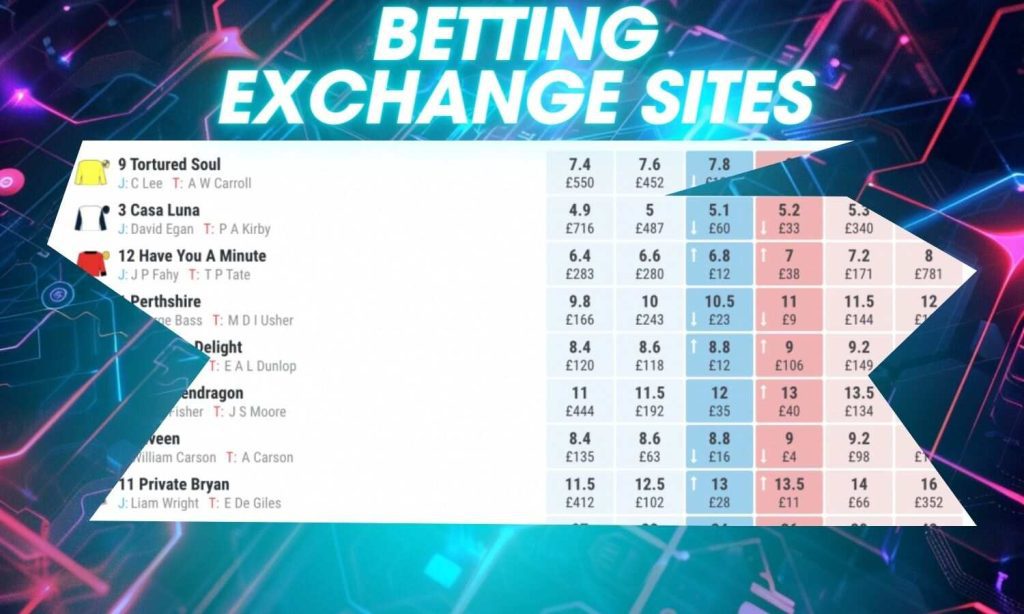When it comes to sports betting, the landscape has evolved far beyond just placing a wager with your local bookmaker or logging into a traditional sportsbook. A growing number of savvy punters are turning to betting exchange sites, which offer a different—and arguably more rewarding—approach to wagering. But are these platforms truly better than traditional sportsbooks? Let’s explore the differences, advantages, and potential drawbacks to find out.
Understanding the Core Differences
At first glance, both betting exchange sites and sportsbooks offer odds and betting markets on various sports and events. However, the way they operate is fundamentally different.
A traditional sportsbook sets the odds and takes bets from customers, effectively acting as the counterparty to every wager. In contrast, betting exchange sites allow users to bet against one another. These platforms act more like marketplaces where players can back (bet for) or lay (bet against) an outcome, with the exchange taking a small commission on winning bets.
Better Odds and Value for Punters
One of the most compelling advantages of betting exchange sites is the potential for better odds. Since users are setting the odds themselves and competing with one another, there’s often less margin built into the pricing compared to traditional sportsbooks, which set odds to ensure a profit margin regardless of the outcome.
This means bettors on exchange platforms can often maximize their returns, especially in high-volume markets where competition drives odds closer to fair value.
The Power to Lay Bets
Perhaps the most revolutionary feature of betting exchange sites is the ability to lay a bet—something you can’t do with traditional bookmakers. This opens up strategies such as trading, hedging, and arbitrage. If you believe a team or player will lose, you can lay that outcome and profit if they do.
This level of flexibility is highly attractive to experienced bettors and is a key reason many are migrating away from conventional sportsbooks.
Transparency and Control
Betting exchange sites generally offer a more transparent betting environment. Since odds are generated by users rather than the platform itself, there’s greater visibility into the market dynamics. Bettors can see how much money is matched on each outcome and at what odds.
Additionally, users often have more control over their stakes and odds, allowing them to tailor their betting experience in a way that suits their strategies and risk appetite.
Liquidity and Market Depth
While betting exchange sites shine in many areas, one of the main challenges is liquidity, especially in less popular sports or niche events. Traditional sportsbooks usually offer fixed odds on a wide variety of events, ensuring that a bet can always be placed.
On an exchange, if there’s no one willing to take the other side of your bet, it won’t be matched. This can be frustrating for casual users who prefer instant bet confirmation.
Commissions and Costs
Another factor to consider is the commission structure. While sportsbooks build their profits into the odds (the overround), betting exchange sites charge a commission on winning bets, typically around 2% to 5%.
For high-volume or successful bettors, this can sometimes offset the advantage of better odds, especially if they win frequently. That said, even with commissions, many users find the net value higher than what’s offered by traditional bookies.
Suitability for Different Types of Bettors
Ultimately, whether betting exchange sites are better depends on your betting style. Casual bettors may prefer the simplicity and guaranteed markets of a traditional sportsbook. Meanwhile, serious punters who seek value, want to lay bets, or enjoy trading strategies may find exchanges more lucrative and engaging.
The Verdict: Evolution or Replacement?
Betting exchange sites represent an evolution in sports betting rather than a direct replacement for sportsbooks. They offer enhanced flexibility, potentially better value, and more strategic options. However, they also come with complexities that may not suit every bettor.
As the industry grows and exchange platforms continue to innovate, it’s likely that they will become even more accessible and appealing to a broader audience. For those willing to learn and adapt, betting exchanges might just be the smarter choice in the long run.



